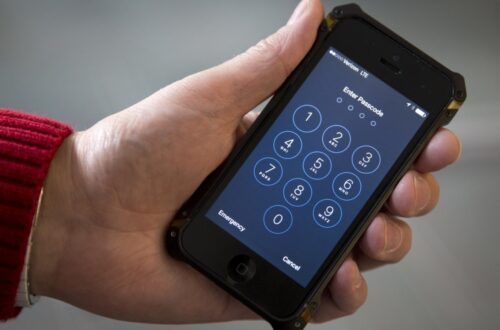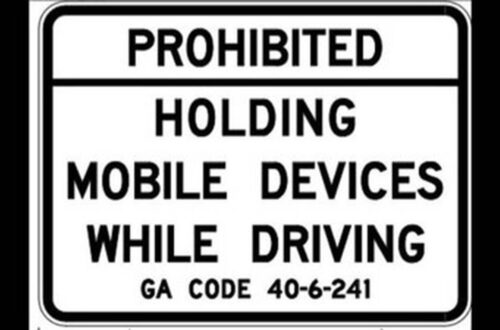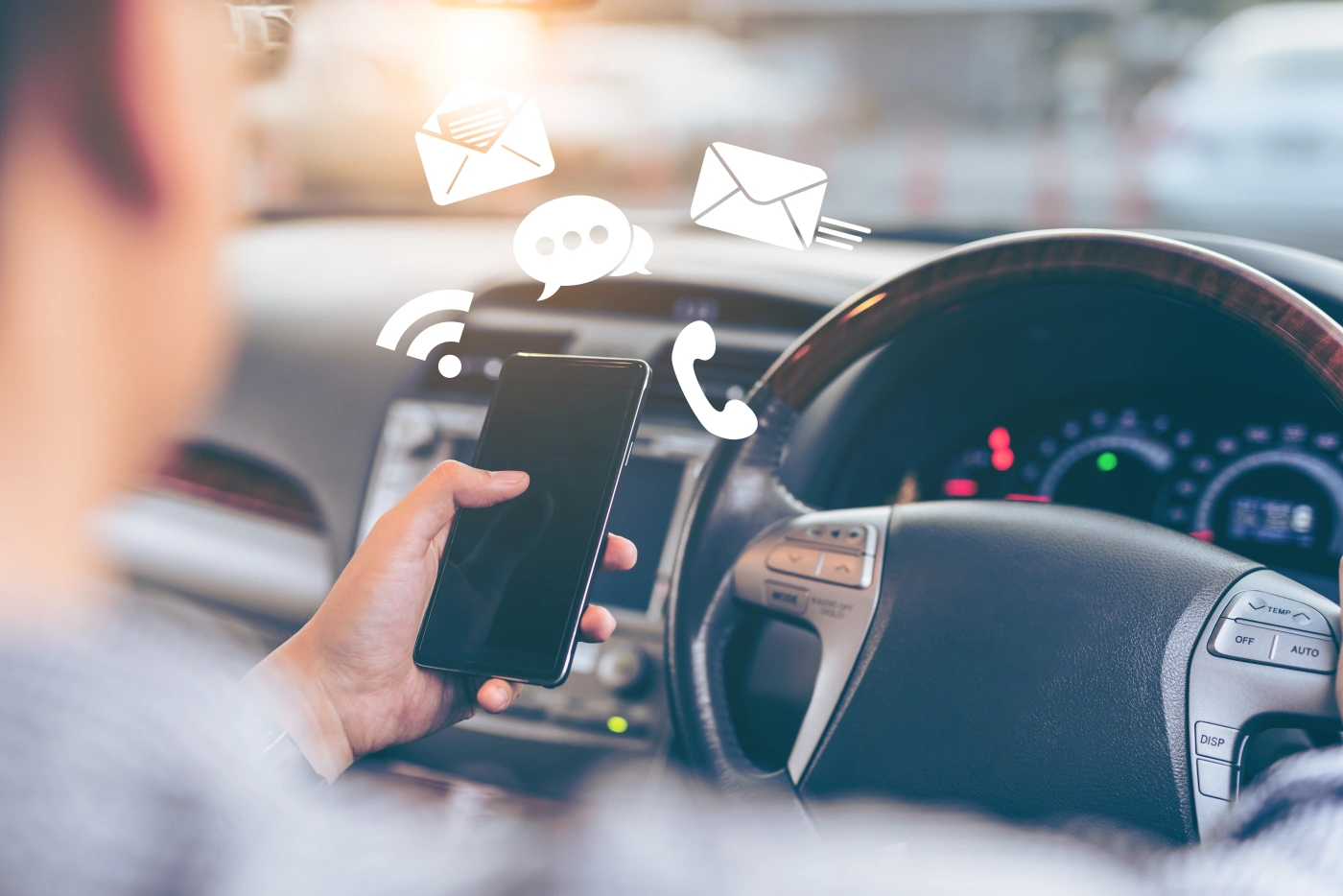If you've ever wondered why teenagers use their phones while driving, it's because of peer influence, social media addiction, FOMO, instant communication needs, and a lack of awareness on risks. Friends' behaviors can make distracted driving seem normal, social media addiction creates urges to check notifications, and FOMO drives the need to stay connected. Instant communication desires and a lack of understanding of the dangers also contribute to this risky behavior. Understanding these factors can shed light on why this behavior persists.
Peer Influence
When driving, peers can heavily influence a teenager's decision to use their mobile phone. The presence of friends in the car can create a sense of social pressure to stay connected, leading you to check messages or notifications while behind the wheel. In many cases, the desire to respond promptly to your peers' texts or calls may override the importance of focusing on the road. The fear of missing out on social interactions or being left out of group conversations can be a significant motivator for engaging with your phone while driving.
Moreover, if your friends are also using their mobile phones while driving, it normalizes this risky behavior and makes it seem more acceptable. Seeing your peers engage in distracted driving can make you feel like it's okay for you to do the same. This peer influence can create a dangerous cycle where everyone in the car feels compelled to use their phones while driving, increasing the overall risk of accidents. It's important to recognize and resist this pressure to prioritize safety over social connections on the road.
Social Media Addiction
Engaging excessively in social media can significantly impact a teenager's ability to disconnect and focus on the road while driving. The constant notifications, likes, comments, and messages create a strong urge to check their phones, even when behind the wheel. Social media addiction can lead to hazardous habits like texting, scrolling through feeds, or taking selfies while driving. The need for validation and the fear of missing out can drive teens to prioritize their online presence over their safety on the road.
Teenagers may feel compelled to document their every move online, including while driving, to maintain their social media image. The instant gratification and dopamine rush from social media interactions can become addictive, making it challenging for them to resist the temptation to use their phones while driving. This addiction not only endangers their lives but also puts other road users at risk. It is essential for teens to recognize the dangers of social media addiction and prioritize safe driving practices over virtual validation.
Fear of Missing Out (FOMO)
Are you constantly checking your phone while driving due to the fear of missing out (FOMO)? The fear of missing out, or FOMO, can be a significant driver behind the urge to constantly stay connected. This fear stems from the worry that you may miss out on important social events, exciting news, or engaging conversations if you are not constantly checking your phone. While driving, this fear can be particularly strong, as you may feel the need to respond instantly to messages or notifications to avoid feeling left out. However, it's important to remember that the consequences of using your phone while driving can be severe, leading to accidents, injuries, or even fatalities. By prioritizing your safety and the safety of others on the road over the fear of missing out, you can help prevent dangerous distractions and stay focused on the task of driving. Remember, no notification is worth risking your life or the lives of others.
Instant Communication Needs
In today's fast-paced world, the need for instant communication is more important than ever. The desire to stay connected and respond promptly to messages, calls, and notifications has become a significant factor driving teenage mobile phone use while driving. The instant communication needs of teenagers stem from a variety of sources, including social media updates, group chats, and the importance of immediate responses from friends and family.
Feeling the pressure to be constantly available and responsive, teenagers often find it challenging to resist the urge to check their phones while driving. The fear of missing out on important information or being out of the loop can lead to risky behaviors behind the wheel. The need for instant communication can override awareness of the dangers of distracted driving, causing individuals to prioritize staying connected over their safety and the safety of others on the road.
To address the issue of teenage mobile phone use while driving, it is important to understand and address the underlying factors driving the need for instant communication and develop strategies to promote safer driving habits without compromising connectivity.
Lack of Awareness on Risks
Despite the prevalence of instant communication needs among teenagers while driving, many individuals exhibit a lack of awareness regarding the risks associated with this behavior. This lack of awareness can have serious consequences, not only for the drivers themselves but also for other road users. To explore further into this issue, consider the following:
- Overconfidence: Believing that one can multitask effectively while driving.
- Ignorance: Not fully understanding the potential dangers of distracted driving.
- Normalization: Considering mobile phone use while driving as a common and acceptable practice.
- Misinformation: Believing myths or misconceptions about one's ability to use a phone safely while driving.
- Consequences: Failing to grasp the real-life impact that accidents caused by mobile phone use can have on individuals and communities.
Frequently Asked Questions
How Does the Use of Mobile Phones While Driving Impact Overall Road Safety for Teenagers?
When you use mobile phones while driving, road safety for teenagers is compromised. Distractions increase, reaction times slow down, and accidents become more likely. It's important to prioritize safety by avoiding phone use behind the wheel.
Are There Any Specific Laws or Regulations in Place to Address Teenage Mobile Phone Use While Driving?
To address teenage mobile phone use while driving, specific laws and regulations vary by location. It's important to stay informed about your local guidelines and understand the consequences of distracted driving to keep everyone safe on the road.
What Strategies or Interventions Can Be Implemented to Reduce Teenage Mobile Phone Use While Driving?
To reduce teenage mobile phone use while driving, prioritize safety by setting clear rules and consequences. Encourage open communication about the dangers of distracted driving. Lead by example and promote responsible behavior behind the wheel.
How Do Parents and Guardians Play a Role in Influencing Teenage Mobile Phone Use While Driving?
You influence your teen's mobile phone use while driving. Be a role model by avoiding distractions. Set clear rules and consequences. Have open conversations about the dangers. Encourage safe habits and provide alternative ways for communication.
What Are the Long-Term Consequences of Habitual Teenage Mobile Phone Use While Driving on Their Driving Skills and Behavior?
Ignoring the context, habitual teenage mobile phone use while driving can lead to deteriorating driving skills, increased risk of accidents, and developing dangerous driving behaviors. It's imperative to prioritize safe driving practices for your future safety.
Conclusion
So, next time you reach for your phone while driving, think about why you're doing it. Is it because your friends are doing it too? Or maybe you can't resist checking your social media notifications? Remember, the fear of missing out or the need for instant communication isn't worth risking your safety. Stay aware of the risks and make the responsible choice to keep your phone out of reach while driving. Your life is worth more than a text message.



